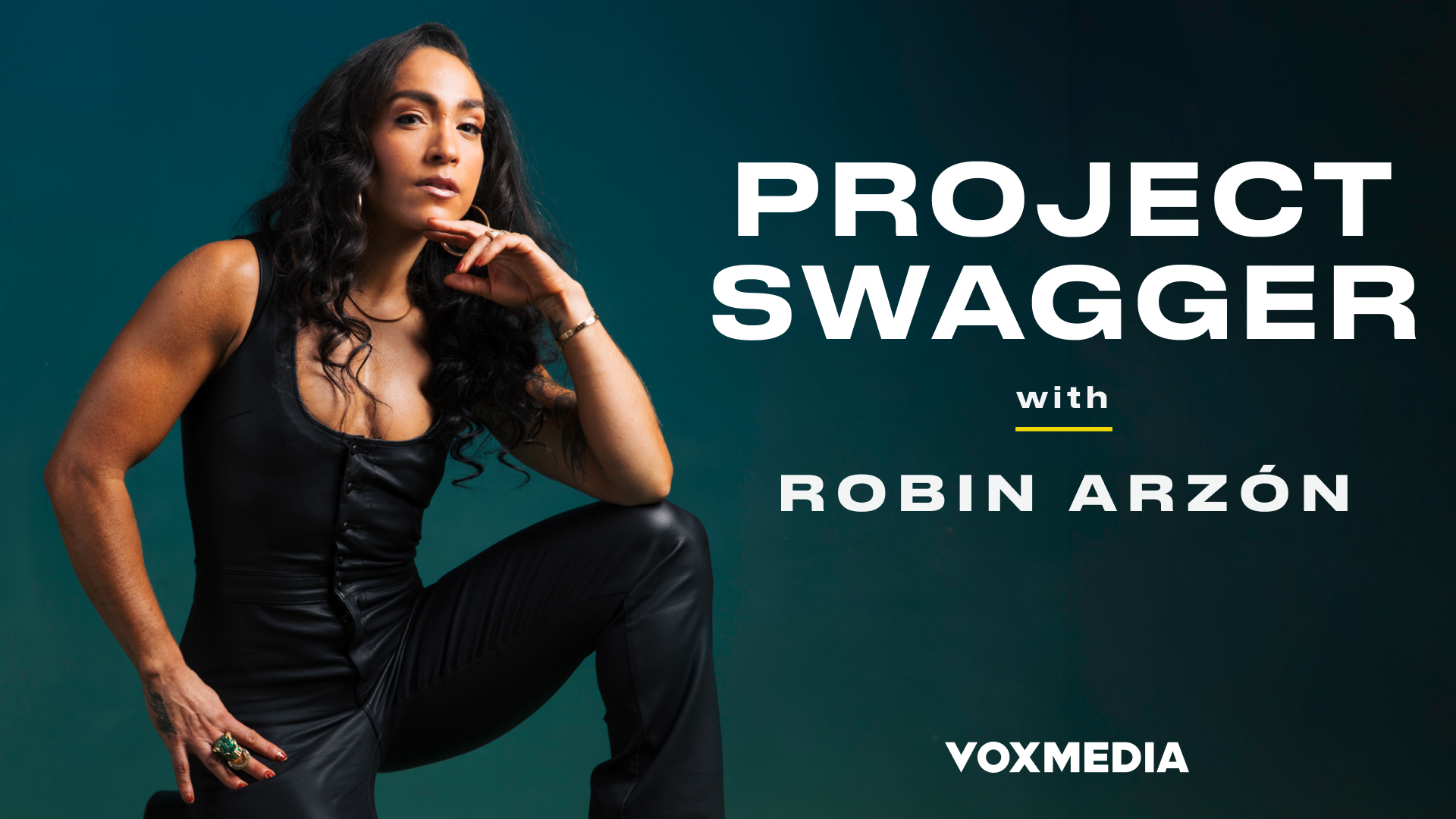“Environmentally sustainable” has become one of marketing’s most buzz-worthy phrases. Vox Media IQ, our research-driven playbook for brands, and our Insights & Innovation team set out to explore this theme because, although the subject of sustainability is receiving much-needed attention, it’s crucial that marketers understand the desire for true action and accountability.
Past research showed Vox Media’s audience is three times more likely to care about social causes compared to the general population, so we crafted a study to understand how they define environmental sustainability — and how their daily lives, actions, and thoughts are shaped by it. In this piece, we’ll reveal which aspects of environmental sustainability matter most to our audience, how brands can make the biggest impact, and the different ways our audience is willing to take action.
SUMMARY OF FINDINGS
The Vox Media audience recognizes that individuals can’t win the fight against climate change without support from the government and private companies. However, our audience is passionate about playing their role in protecting the environment and hungry to learn more about how industries and corporations are joining the fight.
- Our audience believes that environmental sustainability is most deeply tied to taking actions that protect the environment: preserving natural resources, limiting fossil fuel use, and limiting carbon footprint. They expect brands to limit the use of environmentally harmful practices, as opposed to relying on eco-conscious alternatives such as recycling, organic food and multi-use products.
- 84% of respondents believe the government is ultimately responsible for addressing environmental sustainability; however, corporations (75%) and individuals (31%) have roles to play, particularly in the area of reducing waste.
- They don’t want brands to simply support environmental sustainability, they want them to take action to be environmentally sustainable. There’s a clear hierarchy of actions brands can take to be perceived as impactful by consumers: reducing CO2 emissions, limiting energy consumption, and adhering to environmental regulations ranked highest. Brands can’t just “buy” their way out — purchasing carbon credits, donations, and raising awareness ranked lowest.
- The greatest perceived environmental offenders don’t always correspond to top areas of interest. Travel and auto industries are seen as most “unsustainable,” but the environmental impact of the consumer electronics and food/beverage industries are of greater interest to our audience.
- 39% of our audience composts their food waste and 37% grow their own food, revealing their dedication and passion to do their part in supporting environmental sustainability.
- This is further reflected by our audiences’ interest in content that is about the science, data, and politics behind environmental sustainability. They seek context that purposefully contributes to their environmentally conscious views, as opposed to environmental news coverage or lifestyle content.
DEFINING ENVIRONMENTAL SUSTAINABILITY
When we asked the Vox Media audience to define environmental sustainability, two main concepts emerged:
- Preserving natural resources by doing LESS or using LESS
- Consuming and producing products responsibly
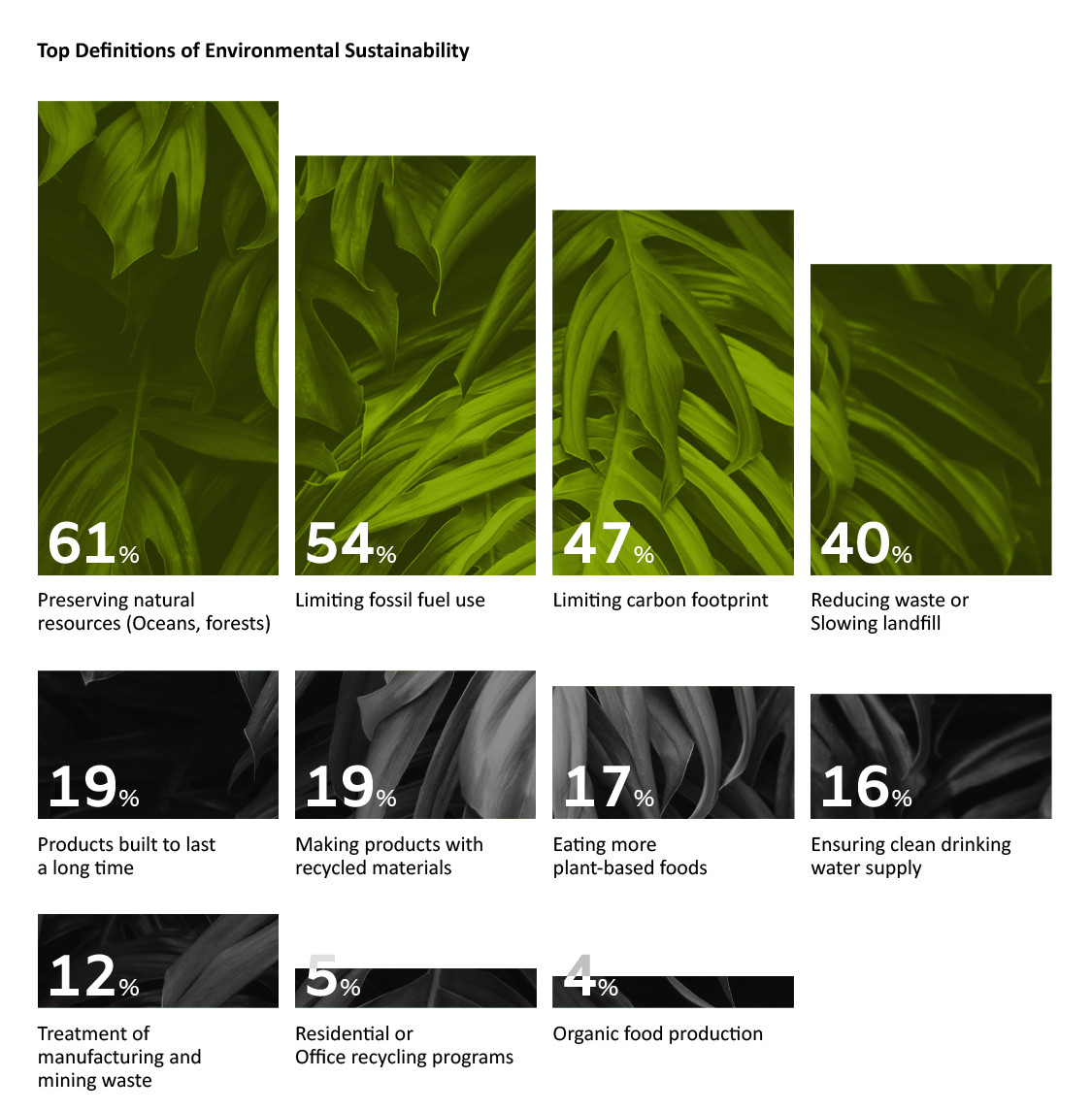
The most often selected definition was preserving natural resources followed by limiting fossil fuel use and limiting carbon footprint. These choices had a clear trickle-down effect to their beliefs around the biggest threats to the environment and perceptions of what industries constitute the greatest threats.
GREATEST THREATS TO THE ENVIRONMENT
The top perceived threats tie directly to the top threats our audience associates with environmental sustainability: preserving natural resources and lessening carbon emissions.
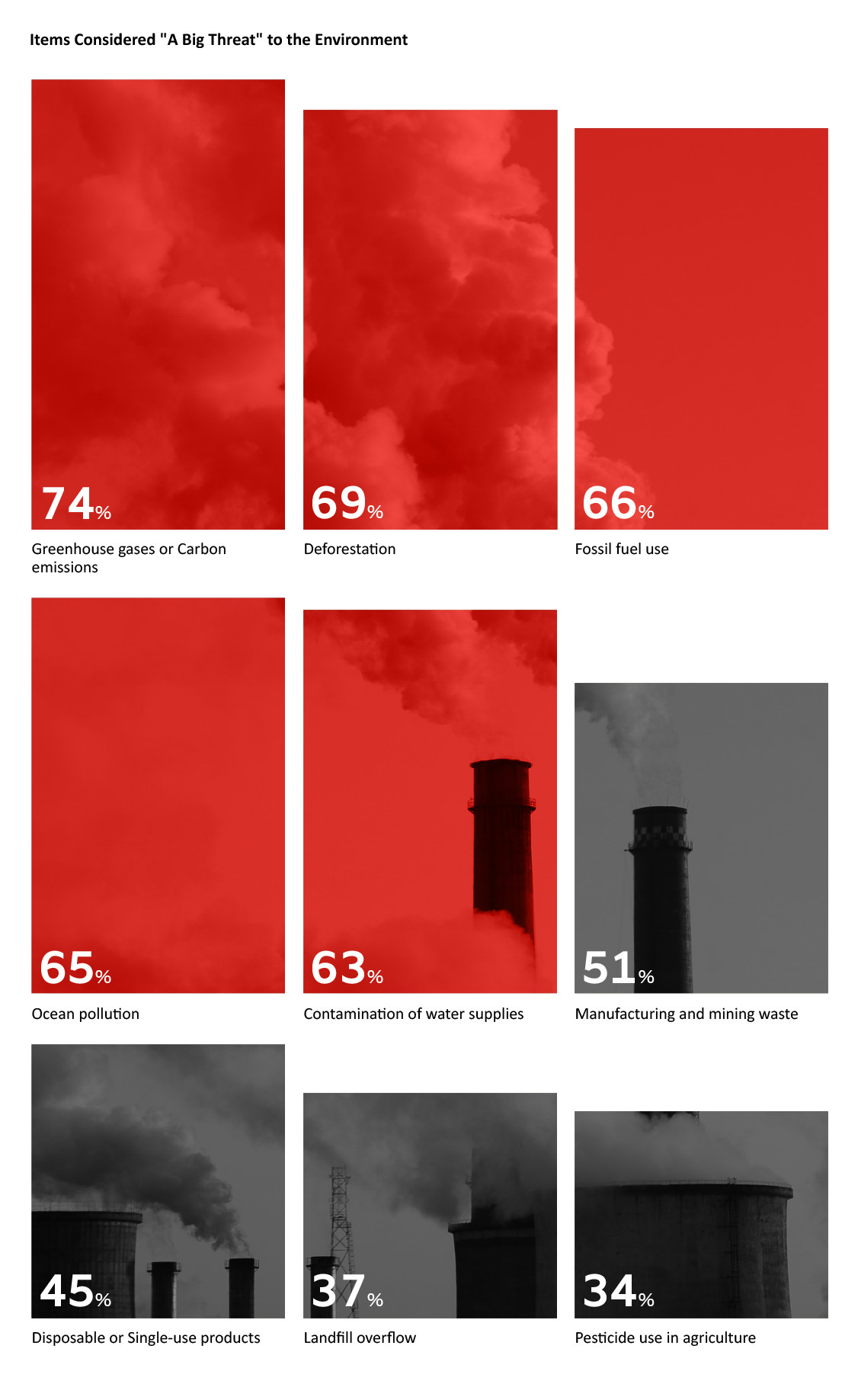
With greenhouse gases and fossil fuels at the top of the list of threats, it’s no wonder travel and automotive are defined as the industries contributing least to environmental sustainability. The fashion industry is also seen as unsustainable, likely due to strong press coverage of “fast fashion” and the havoc it wreaks on the environment.
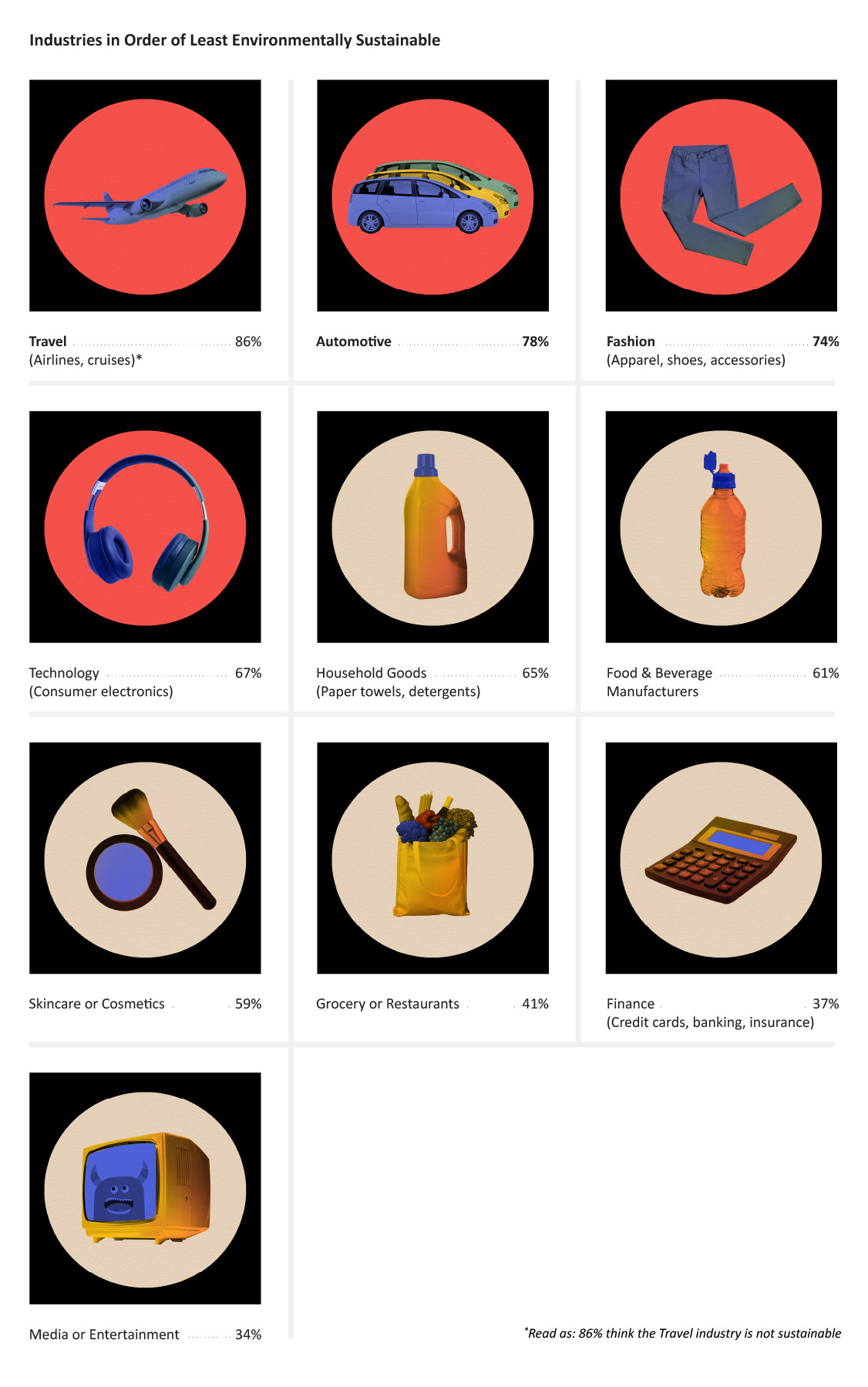
The harshest critics of industry are our younger Millennial audience (age 25-29). They see many industries as significantly less sustainable compared to our age 35+ audience.
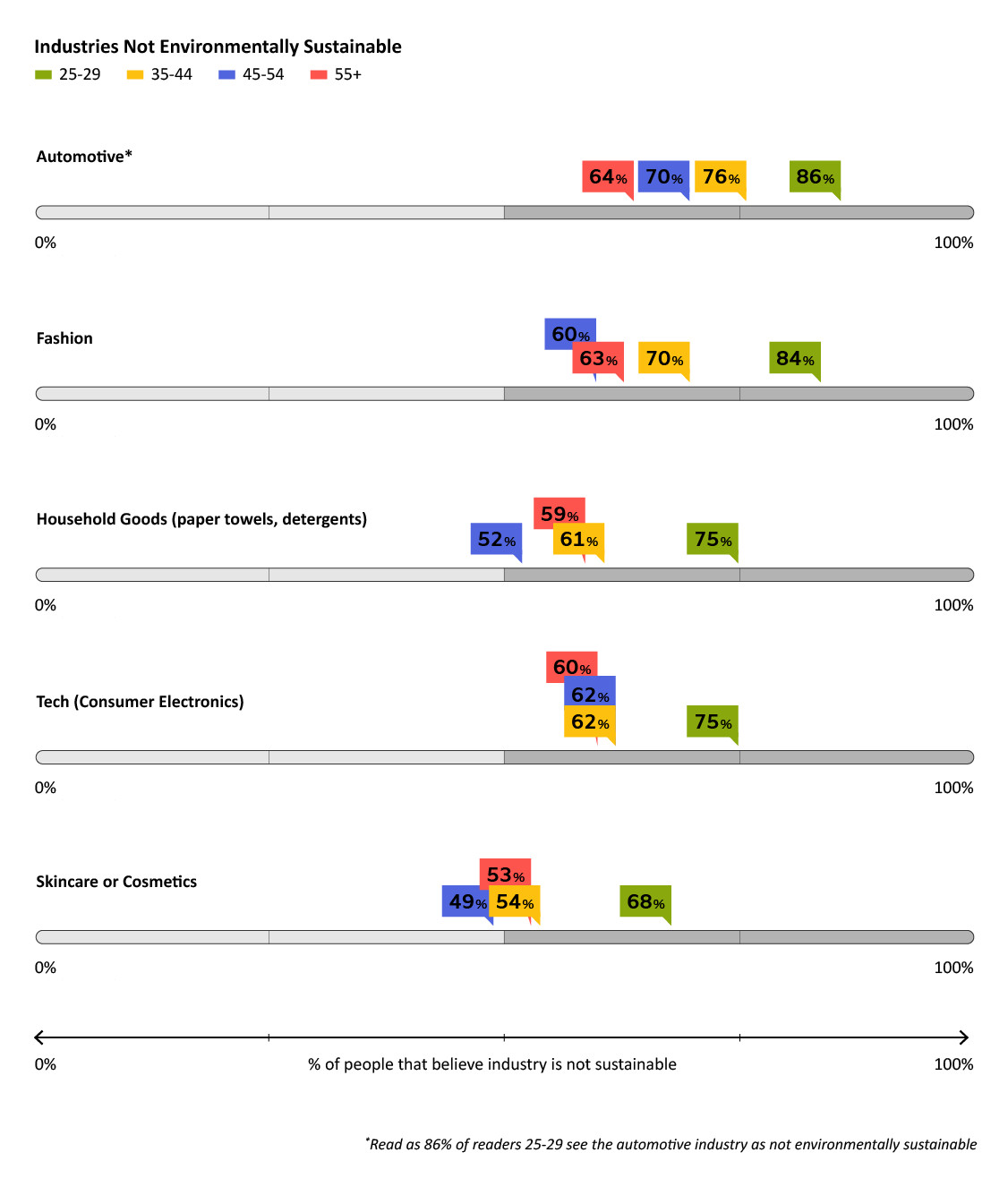
WHO IS RESPONSIBLE FOR THE ENVIRONMENT?
Environmental sustainability has disproportionately been presented as the responsibility of individuals, but the issue is far more complex and systemic than previously perceived. For example, consumers are realizing recycling plastic bottles alone isn’t going to stop global warming.
According to the Pew Research Center, 63% of U.S. adults believe the national government is doing too little to reduce the effects of climate change. 84% of the Vox Media audience believes the government has the most responsibility for addressing environmental sustainability.
That said, brands aren’t off the hook; 75% of our audience said for-profit/private companies have a lot of responsibility in addressing environmental sustainability, second to the government. Furthermore each of these entities are seen as having different strengths when it comes to making an impact on the environment.

Not surprisingly, the government is seen as most impactful in supporting environmental regulations. Non-profit organizations also are viewed as having an impact on environmental regulations, although to a lesser degree than the government.
Private corporations and individuals have the highest potential to limit waste, but Vox Media audiences believe private companies alone can make the biggest impact in reducing emissions— a key opportunity for brands to make a difference.
Different Generations Have Differing Views on Responsibility:
Although it’s agreed that the government is ultimately responsible for addressing environmental sustainability, there are some differences of opinion across age groups when it comes to individuals’ and private companies’ level of responsibility.
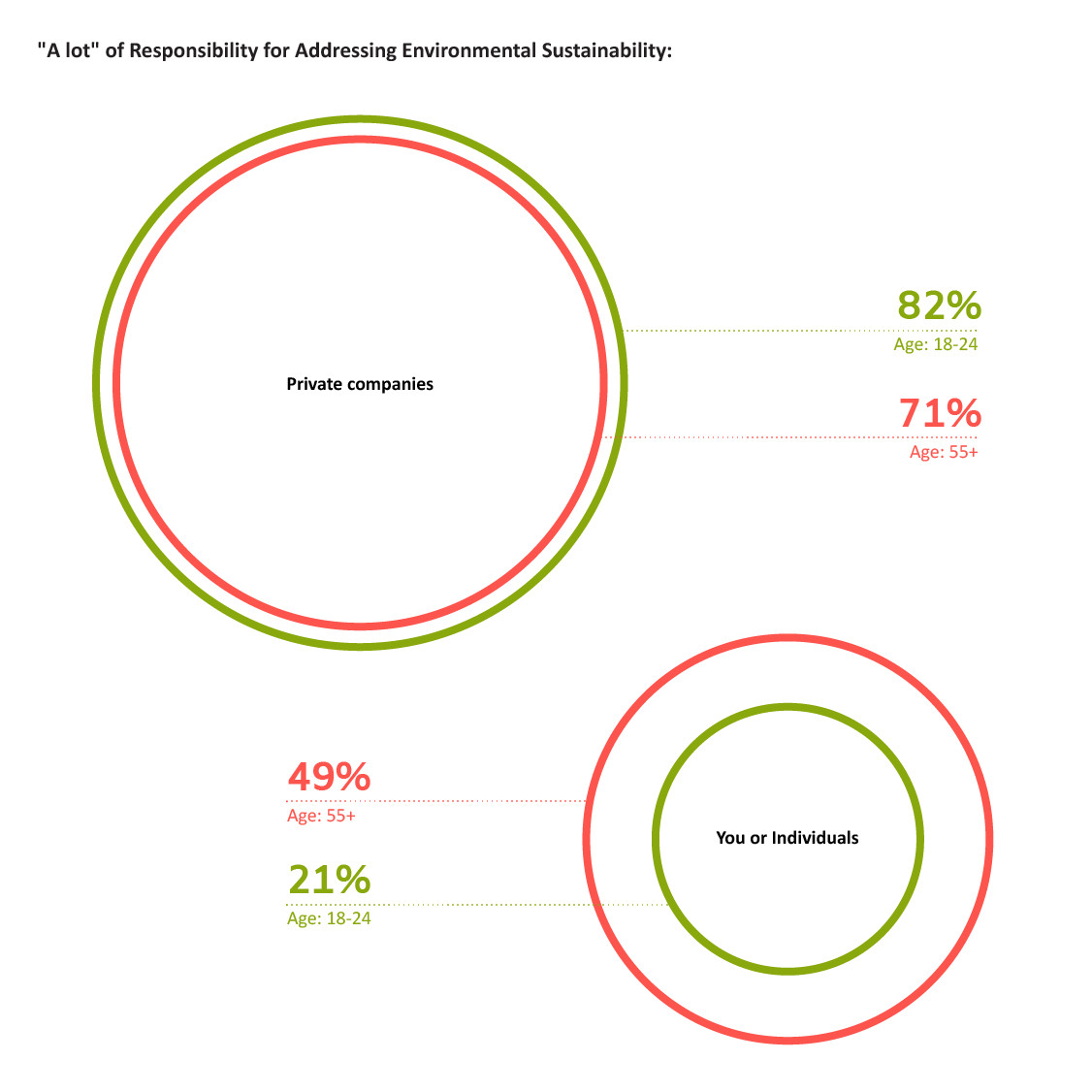
Generally speaking, as age increases the more likely they believe that individuals have a stronger responsibility to address environmental sustainability. As age decreases, the more likely they believe that private companies have a stronger responsibility.
The fact that Millennials and Gen Z see less responsibility for themselves may play into stereotypes; however, messaging from big oil and plastics companies have likely influenced our older audience’s beliefs. In the “1990s there was an increasing number of commercials and messages about recycling plastic… these commercials carried a distinct message: Plastic is special, and the consumer should recycle it” (Sullivan, “How Big Oil Misled The Public Into Believing Plastic Would Be Recycled”, NPR, Sept. 2020). With the rise of social media in recent years, brands have lost control over younger public opinion. Millennials and Gen Z aren’t afraid to call out corporations for bad practices or…anything, really.
HOW BRANDS CAN MAKE AN IMPACT
The data revealed that not all actions are seen as equally impactful. When we asked about specific actions companies can be taking to make an impact, there was a clear distinction in perceptions of passive vs. active involvement. Passive actions such as purchasing carbon credits and donating to nonprofits don’t stack up against actions showing active involvement like reducing CO2 emissions and limiting energy consumption. These are the areas where brands can really make a difference and shape perception.
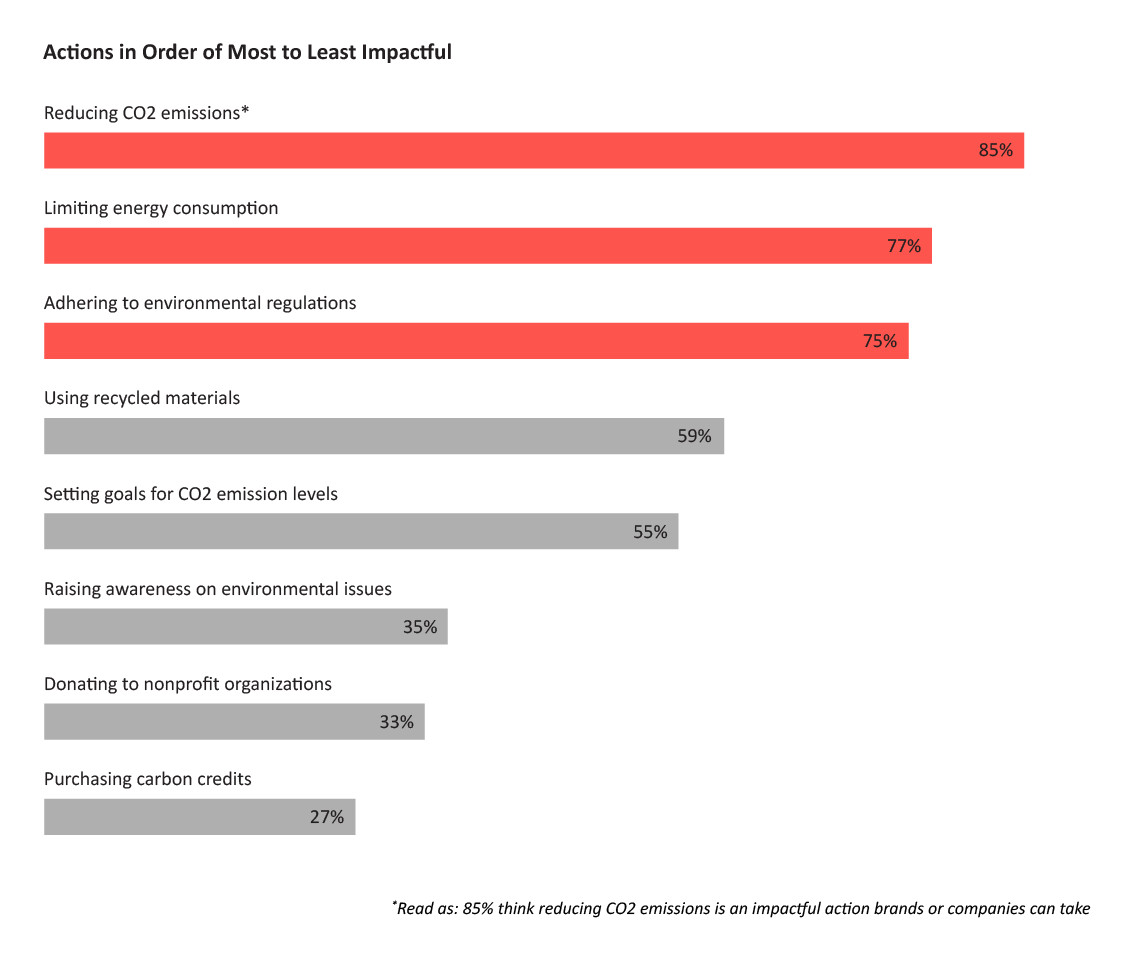
That said, our 55+ audience tends to see passive actions as significantly more impactful than our younger audiences do.
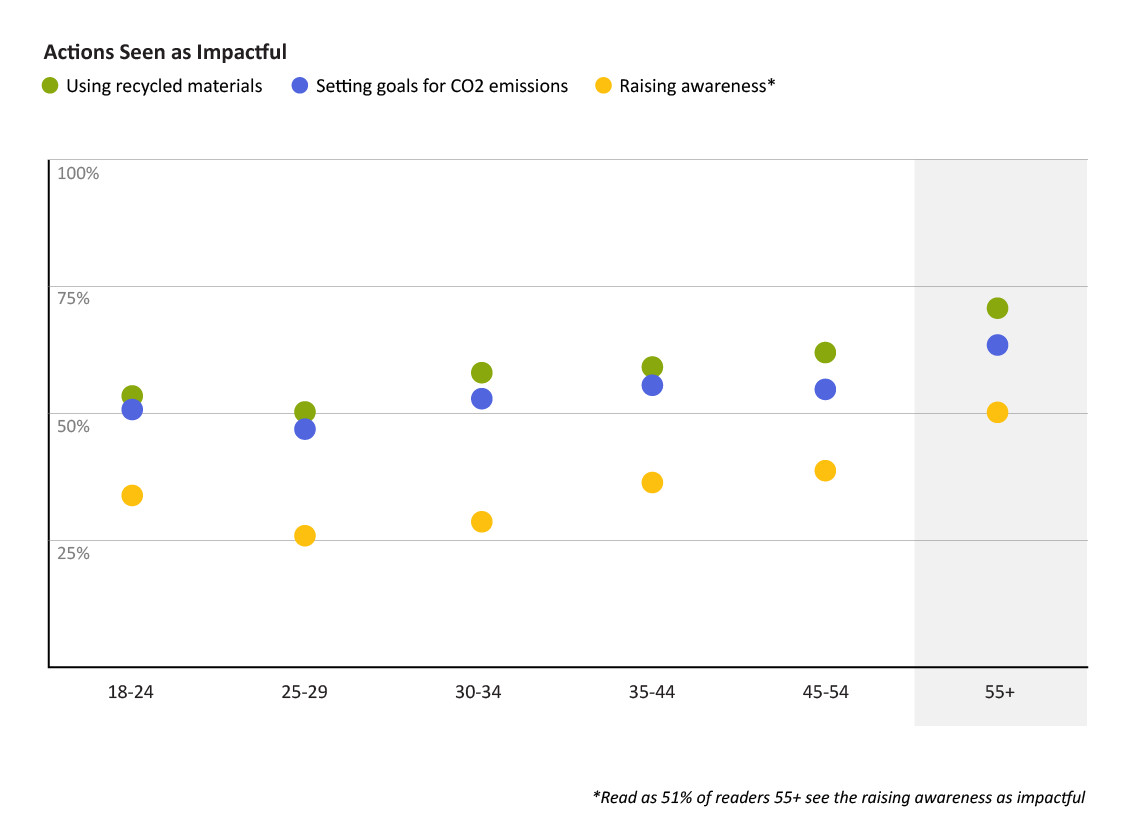
WHERE OUR AUDIENCE IS MAKING A DIFFERENCE
Looking at actions taken in the past year, the majority of our audience is already incorporating environmentally sustainable actions into their lives.
- 90% reduced energy consumption
- 89% limited single-use items (e.g. used reusable bags, cloth napkins)
There is higher participation in actions that are readily available and easy to adopt. For example, recycling (96%) — many municipalities have existing recycling programs, and eating more plant-based foods (73%) can be achieved via grocery store purchases.
Although less “mainstream” actions aren’t participated in as frequently, they still have high engagement from the Vox Media audience. Over a third of our audience composted food waste (39%) and grew their own food (37%), showing that they’re willing to go the extra mile for a cause they believe in.

When asked what actions they took in support of environmental sustainability specifically, the theme of conscious consumerism emerged. Our audience cares about where their money is being spent and who they’re supporting.
Top Actions Taken in Support of Environmental Sustainability in the Last Year:
- 79% bought environmentally sustainable products in the last year
- 46% boycotted products/companies, in support of environmental sustainability
- 43% donated money or attended a fundraiser
HOW TO CAPTIVATE THE VOX MEDIA AUDIENCE
What Topic Areas Should Content Address?
When asked which environmental topics they were most interested in learning more about, our audience’s top three choices further confirmed their interest in and affinity towards preserving natural resources.

It’s interesting to note that although limiting fossil fuel use / carbon footprint were top definitions, our audience still finds specific branches of preserving natural resources (deforestation etc.) more appealing to learn about. These may be topics they have only surface level knowledge about, vs. fossil fuels, which have been the center of attention in the news for many years.
The same pattern emerged when we asked about different industries’ impact on the environment. Although travel, auto, and fashion industries were the biggest offenders, none of them topped the list of industries our audience wants to learn more about. Our audience wants to learn something new, not be told more of what they already know.

Lastly, we asked which topics would attract their attention when browsing the internet. The category-specific content topics were actually of lesser interest than the science, economics, and politics of environmental sustainability. Data visualization and guides for living are also ranked as top content formats.
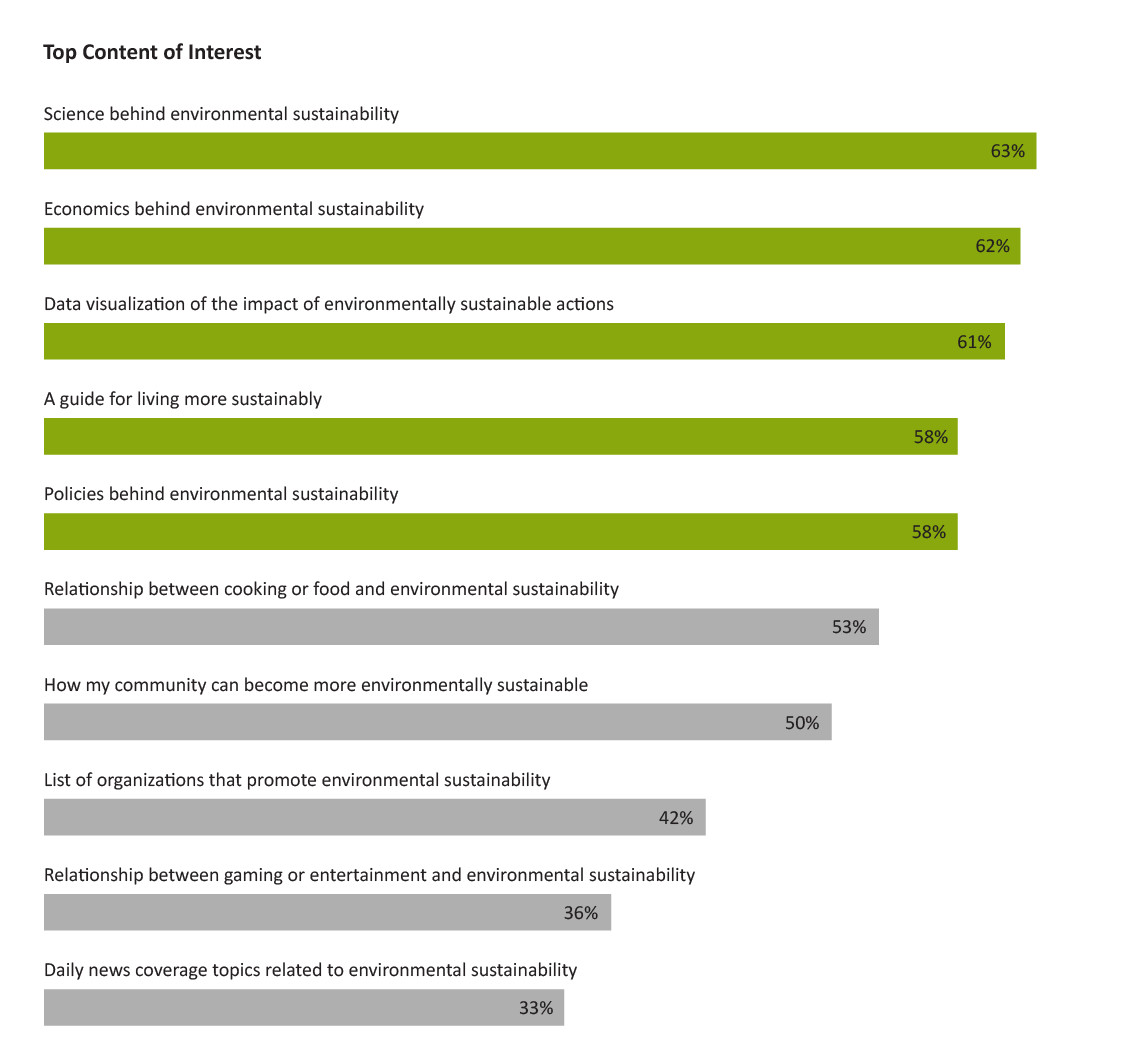
It’s clear that the Vox Media audience is motivated and committed to take action in support of environmental sustainability. With the support of brand, non-profit, and other partnerships, we have a real opportunity to educate and join our audience in their commitment to authentic change.
METHODOLOGY
We designed and fielded a survey in April 2021 to our proprietary Vox Media Survey Panel, which includes readers from across our 13 brands; 2,744 respondents completed the survey.
Edwin Wong, Nichole Becker, & Loren Diblasi also contributed to this report.

